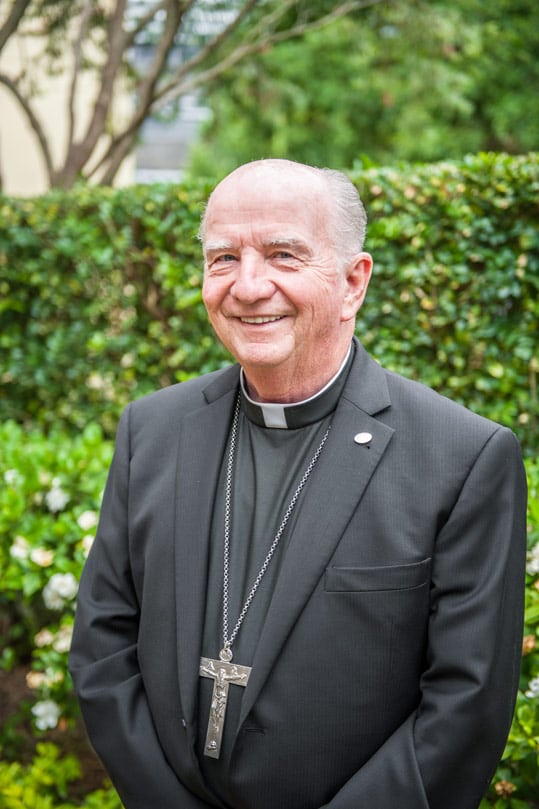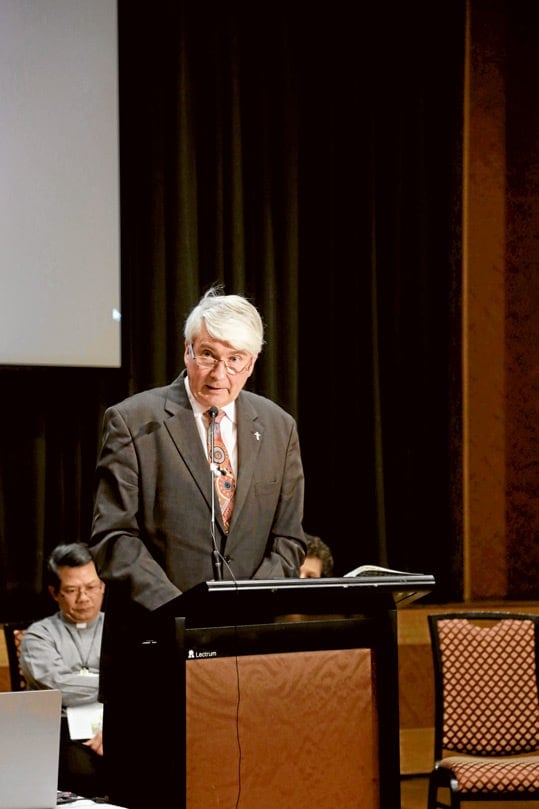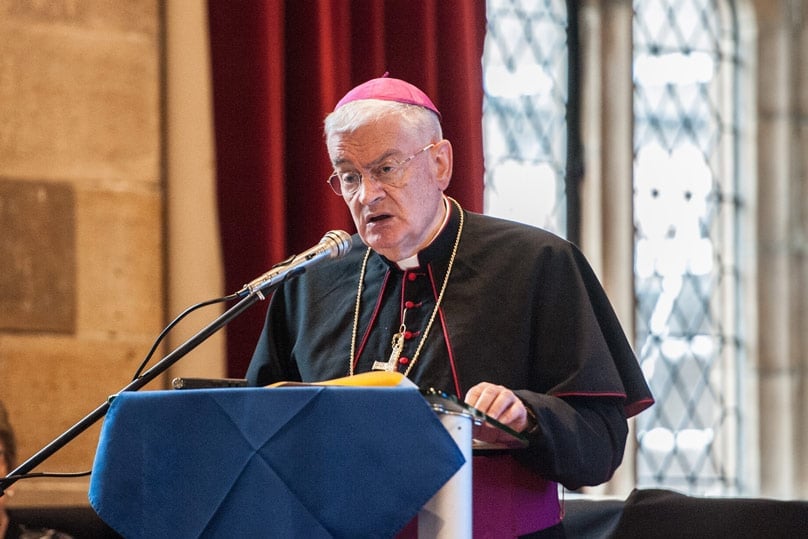
The proposed Foreign Influence Transparency Scheme Bill 2017 “could mean five million Catholics would have to go and put themselves on a register,” an Australian bishop has warned.
Bishop Robert McGuckin of Toowoomba said the bill “casts the net so wide that it could catch not just bishops but every Catholic.”
The Government has proposed the bill in a bid to improve the transparency of activities undertaken in Australia on behalf of foreign nations.
“If Catholics want to speak to their local MP or express some view to their Parliamentarians, they’d have to go on a register, take notes of what they’ve done and things like that,” Bishop McGuckin said.
The legislation could also affect the Church’s extensive charitable operations. “It’s a lot of red tape for our charities of which the money could be used for the disadvantaged. These funds need to be used for what they’re meant for.”
Earlier, addressing a Parliamentary committee reviewing the proposed laws to clamp down on espionage and foreign interference in Australian politics, the bishop pointedly told the committee that Catholics are followers of Jesus Christ, not agents of a foreign government.,
“The proposed laws could mean Australian Catholics will be defined as agents of the Vatican in Rome.”

Speaking on behalf of the ACBC, Bishop McGuckin addressed the Parliamentary Joint Committee on Intelligence and Security on Tuesday.
While fully supporting the Government’s objective “to improve the transparency of activities undertaken on behalf of foreign principals,” the bishop he rejected the bill’s characterisation of the Catholic Church.
“The Catholic Church in Australia is made up of millions of Australian citizens who practice the Catholic faith, not people beholden to a foreign power.”
Meanwhile the CEO of Catholic Social Services Australia, Fr Frank Brennan SJ, wrote in the online opinion journal Eureka Street that, “The line has not been well drawn. The legislation defines ‘registrable activities’ and then sets out a series of exemptions. The web of registrable activities is impossibly wide … The drafters of the legislation have an Orwellian view that Catholics operate at the direction of foreign operatives.”
Another bishop, Peter Elliott of the Melbourne Archdiocese said that history should serve as a caution against anti-treason laws defining Catholics as foreign agents.
“We would be concerned at any laws that define Catholics as subjects of a foreign power because there are four very bad historic precedents at least.”

He said that 16th century Elizabethan England, Germany in the late 19th century under Bismarck, and in the 20th century under Hitler, and communist China, were all regimes that considered Catholics as owing allegiance to a foreign power.
The persecution of Catholics under Queen Elizabeth I was based not on religion but on the claim that Catholics were traitors, Bishop Elliott said. “No Catholic was condemned for heresy. They did it under treason.”
As an apostate Catholic, Adolf Hitler, also saw Catholics as owing allegiance to someone outside Germany, he said. “In a totalitarian state you can only have allegiance to the state. Hitler understood that as an apostate Catholic. Had he won the war he would have pursued that line.”
In communist China, Catholics have been considered subjects to a foreign power since 1949, Bishop Elliott said, and this led to the founding of the Catholic Patriotic Society, the state-sanctioned version of the Catholic Church in China.
He said viewing Catholics in this way is a problem that “lingers”.
Bishop McGuckin said he felt hopeful that the Church’s concerns would be taken seriously in this instance, following his address to the Parliamentary Joint Committee.
“I think we got a good hearing. We were certainly heard and there was acknowledgment there. So we look forward to some amendments to cover the points we raised.”
